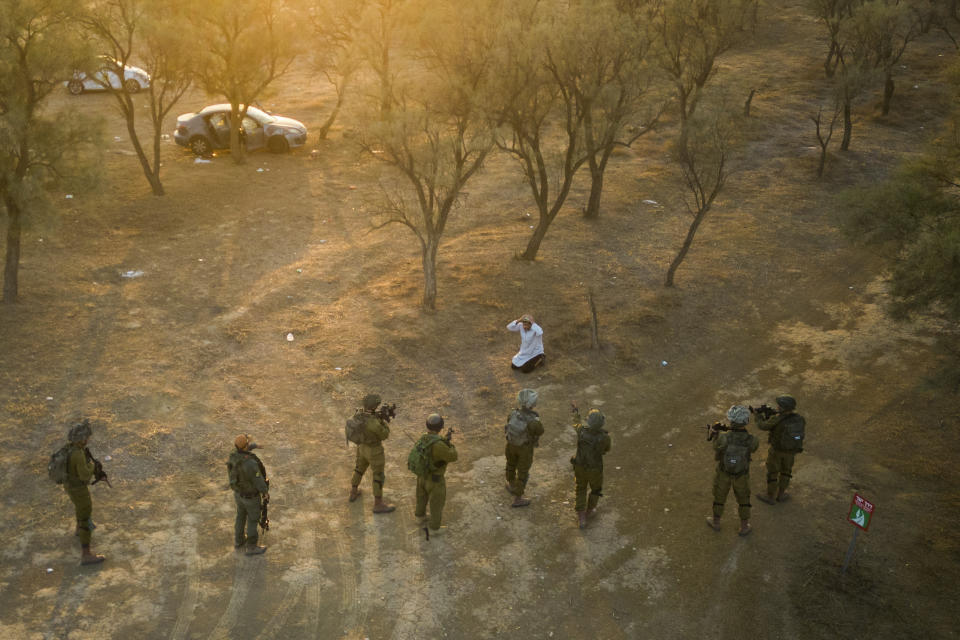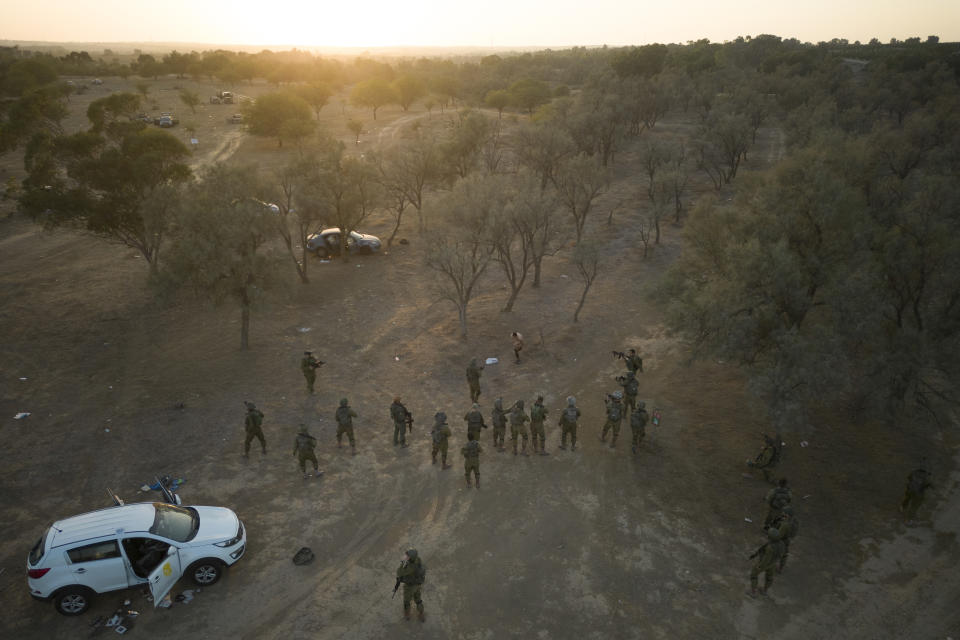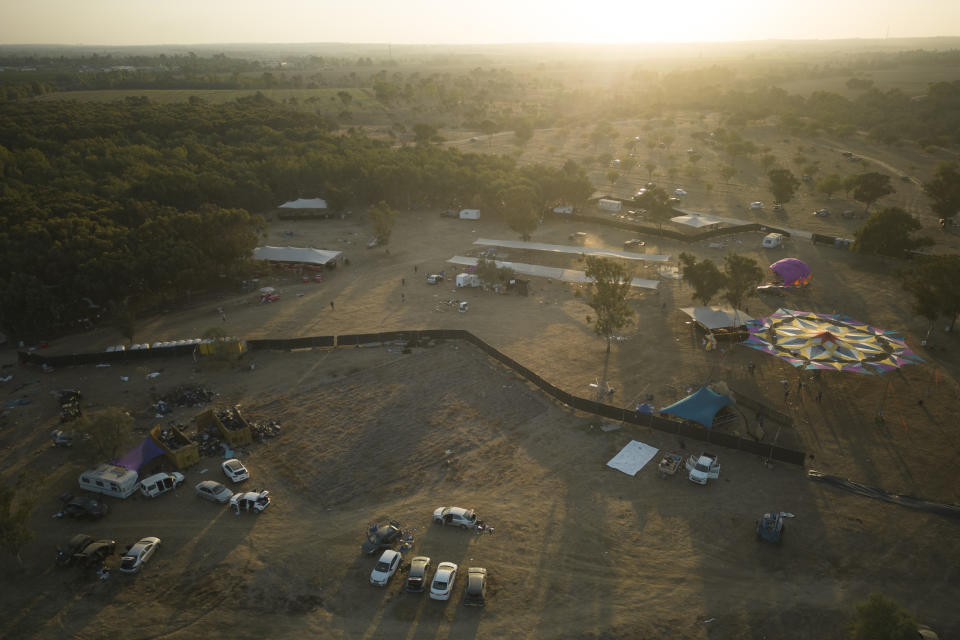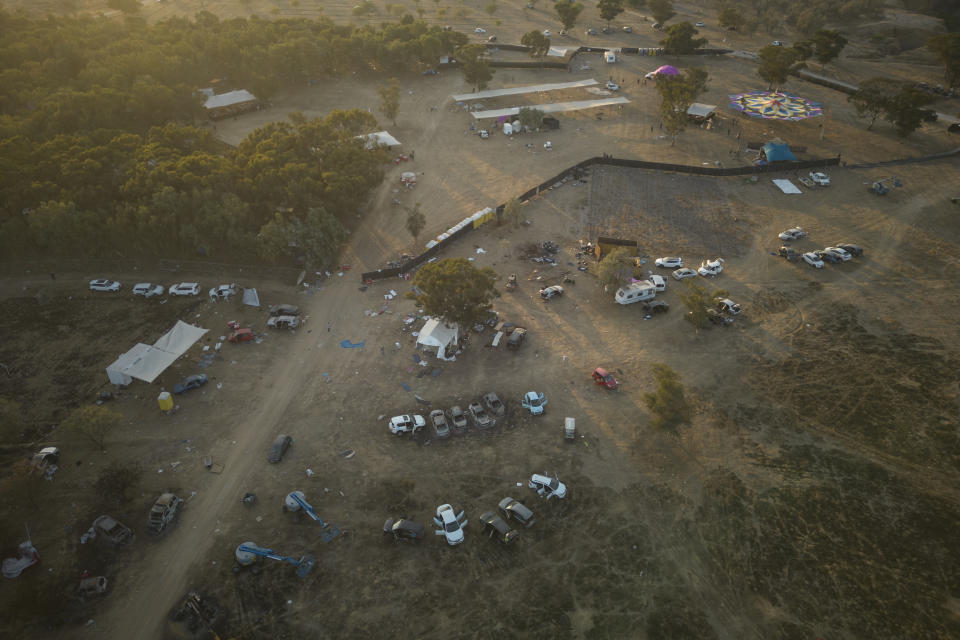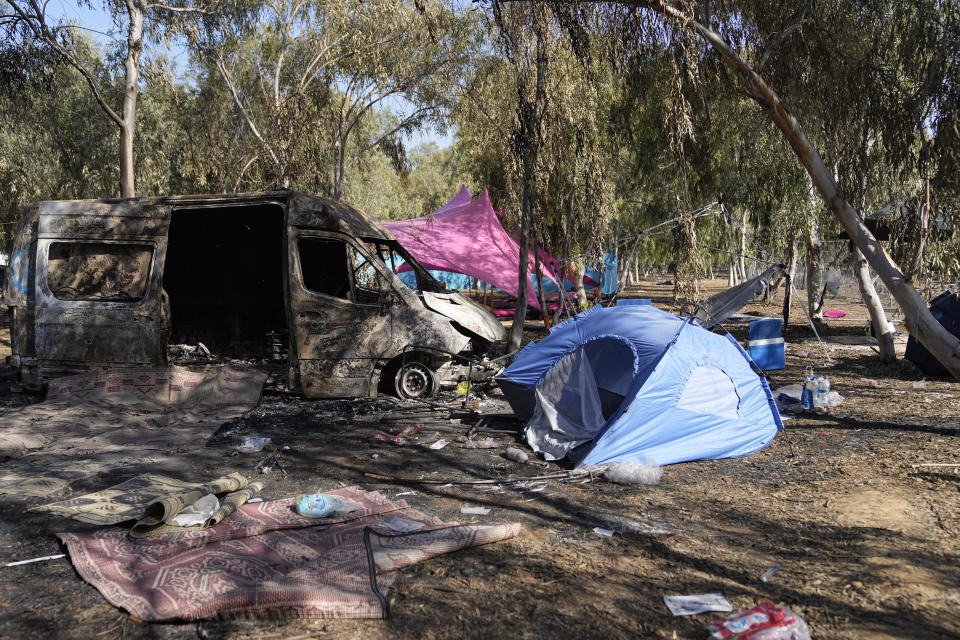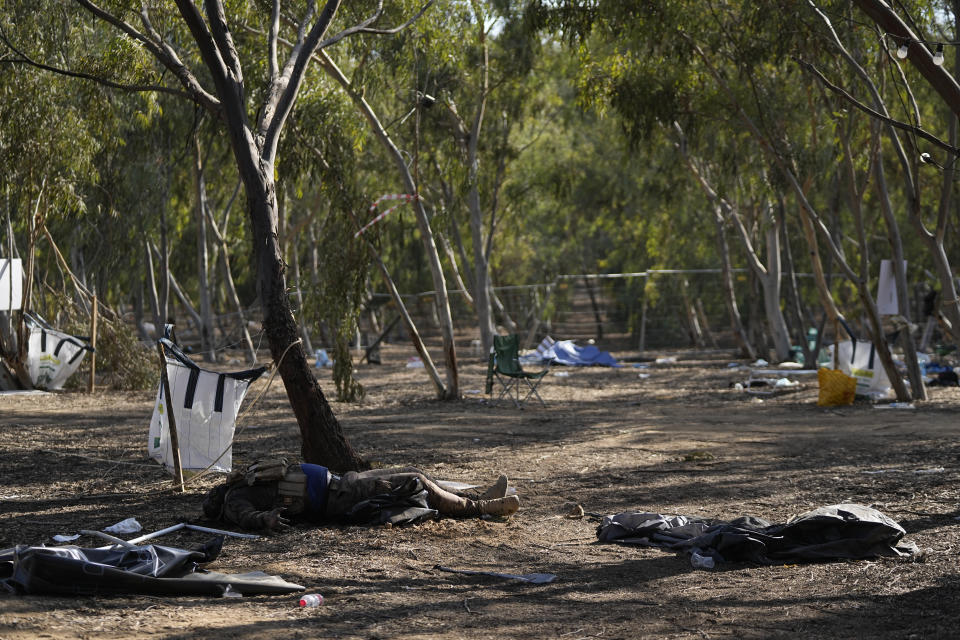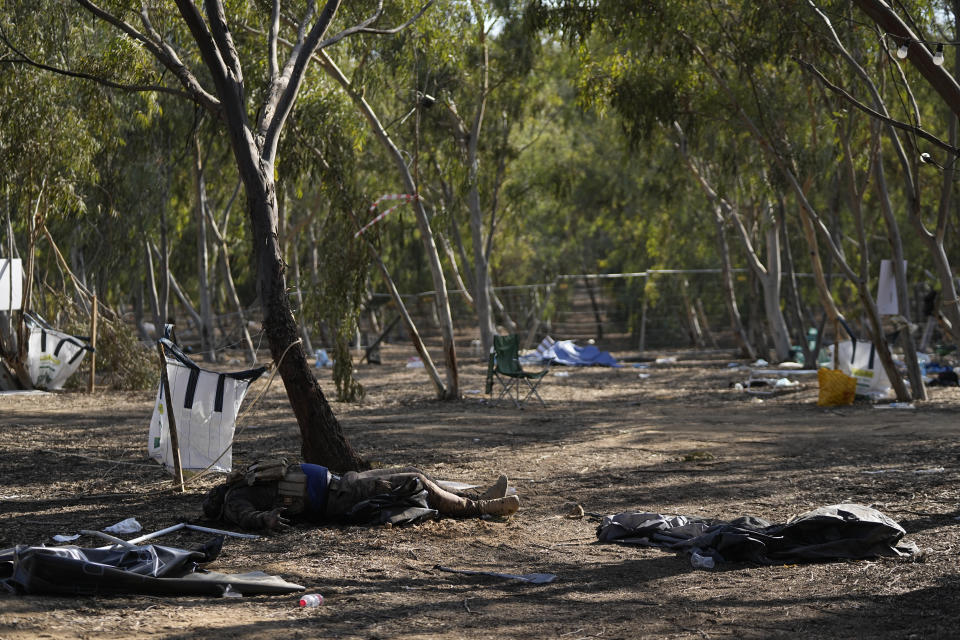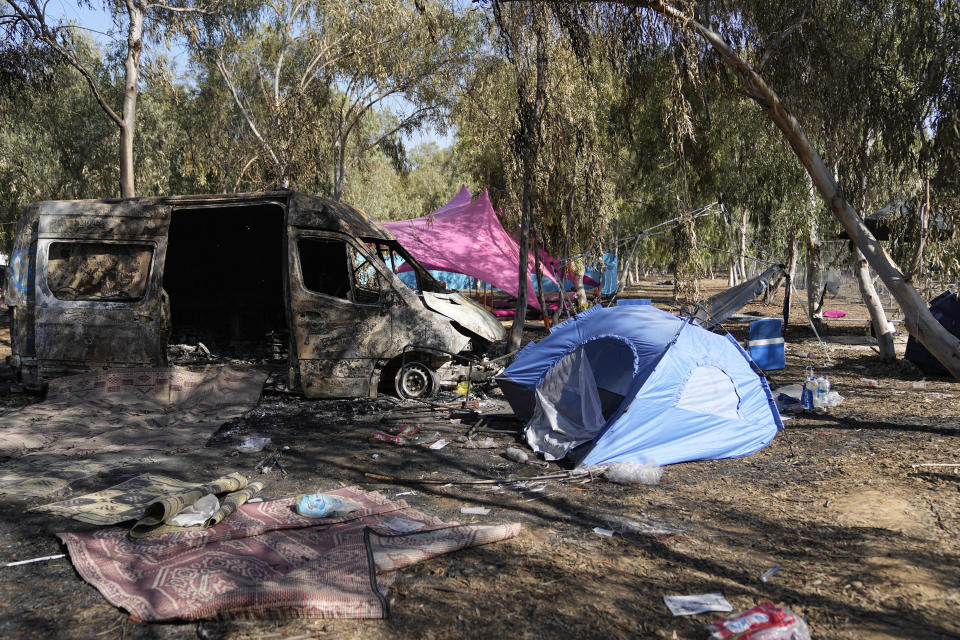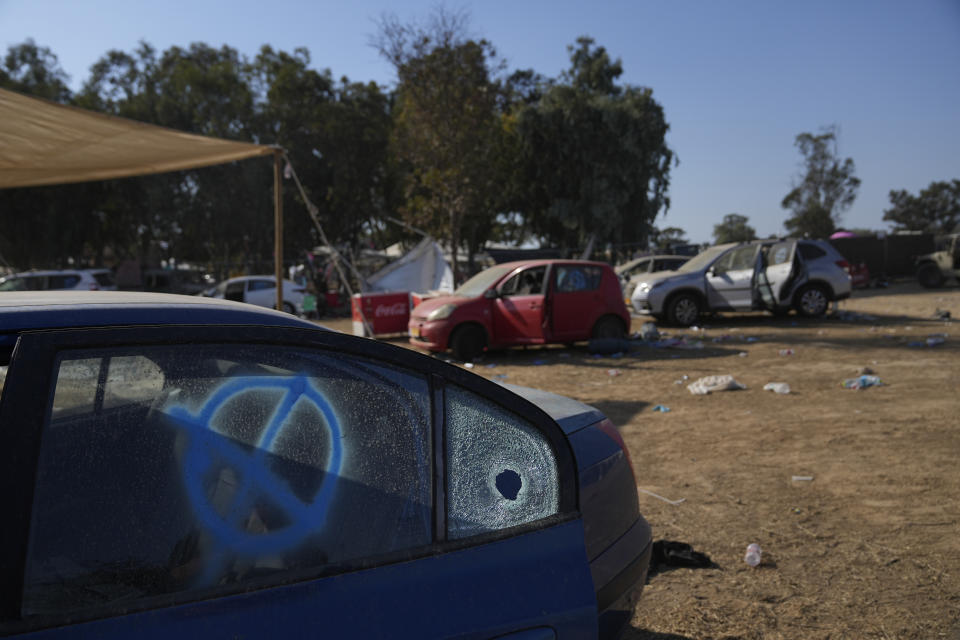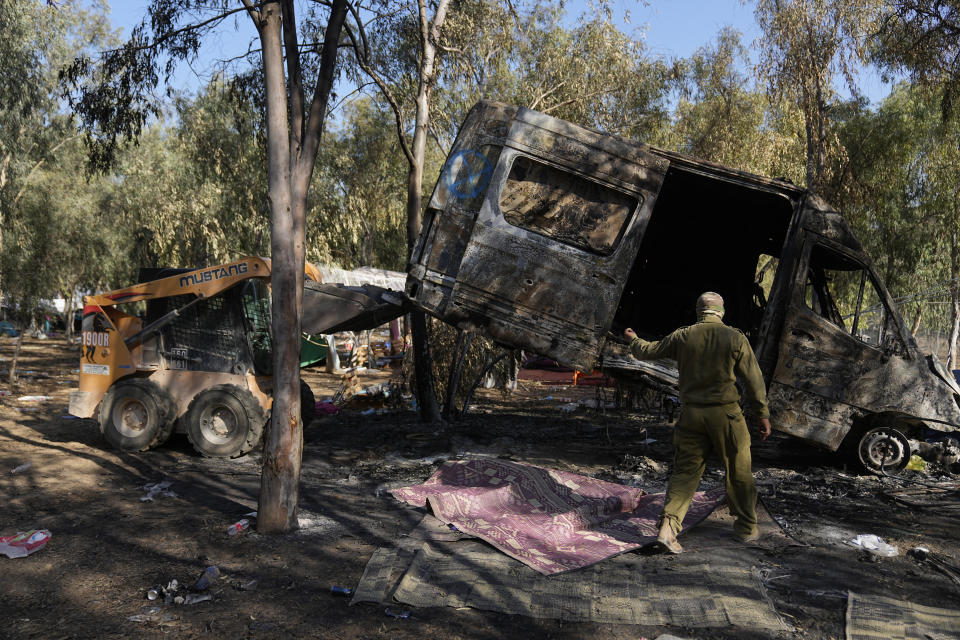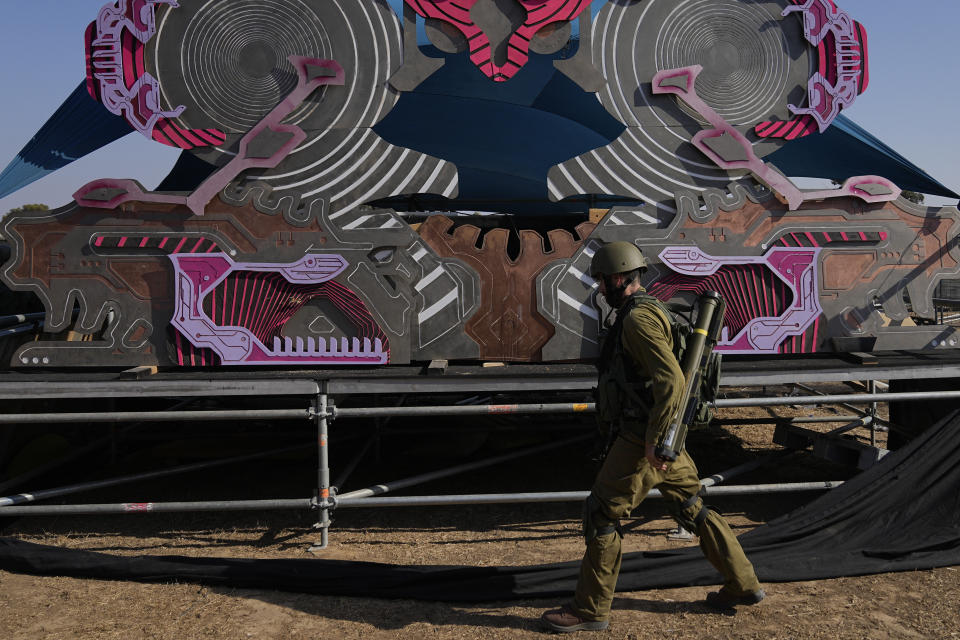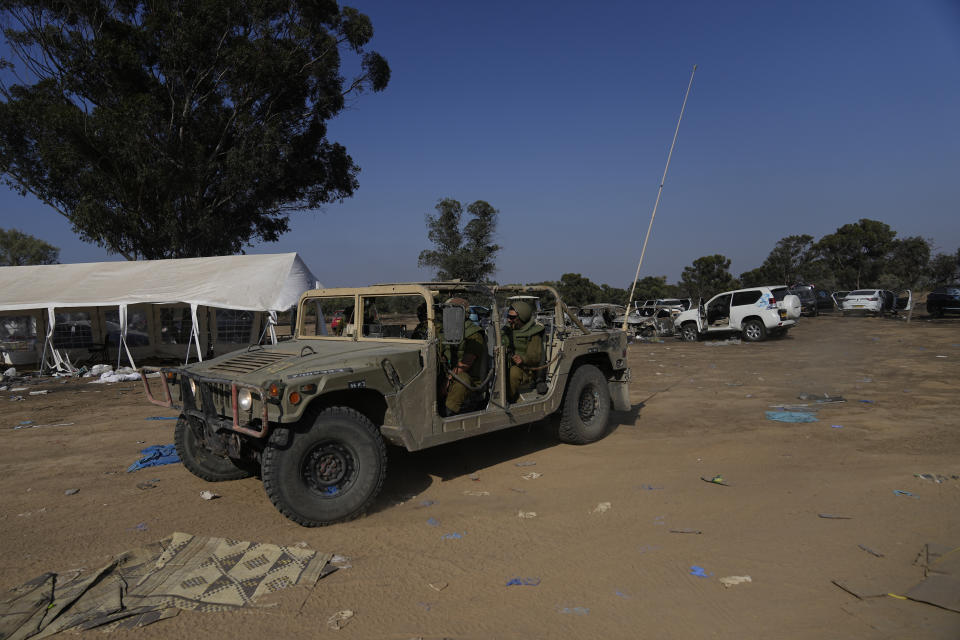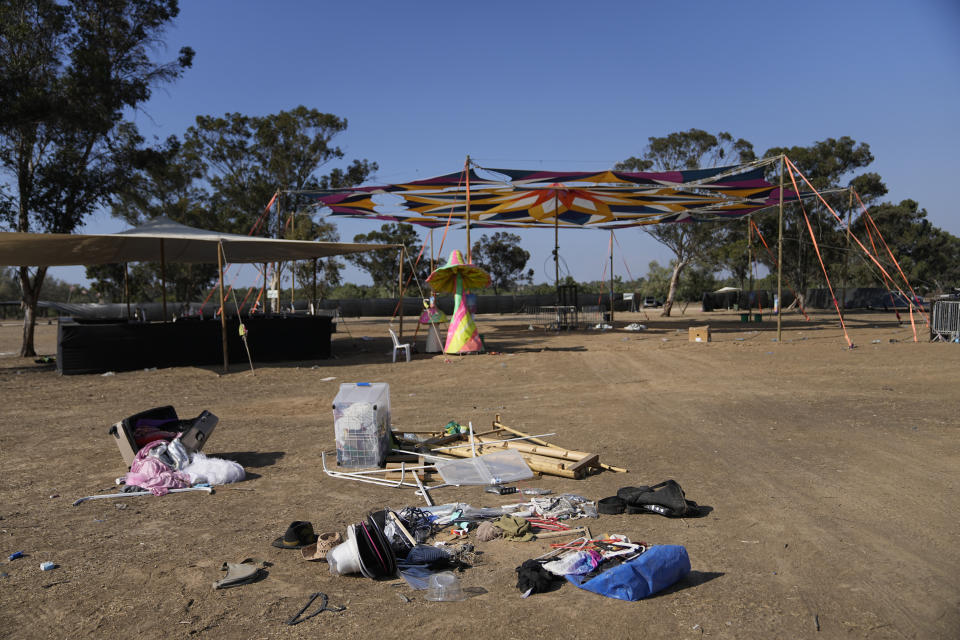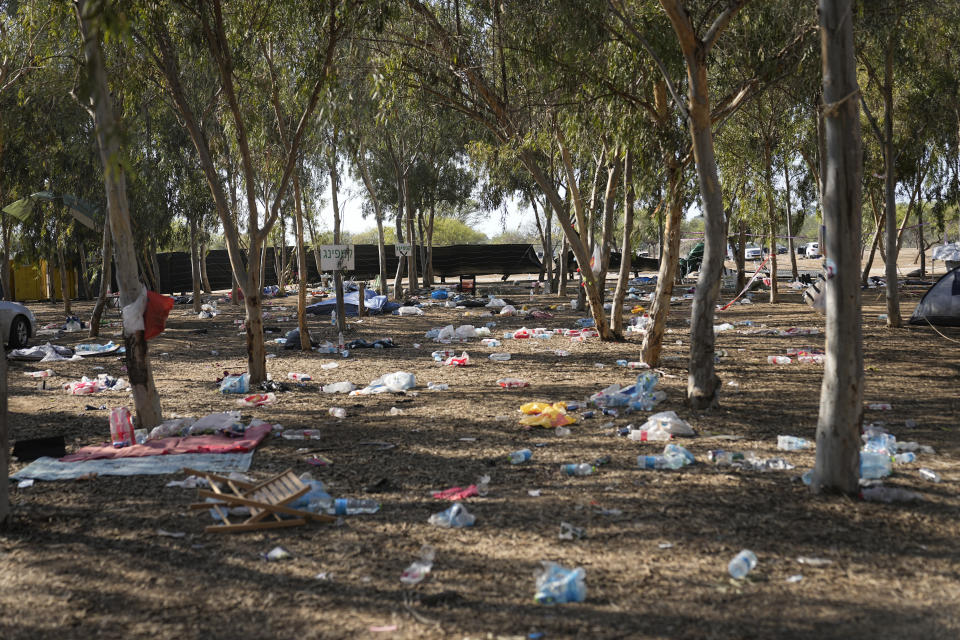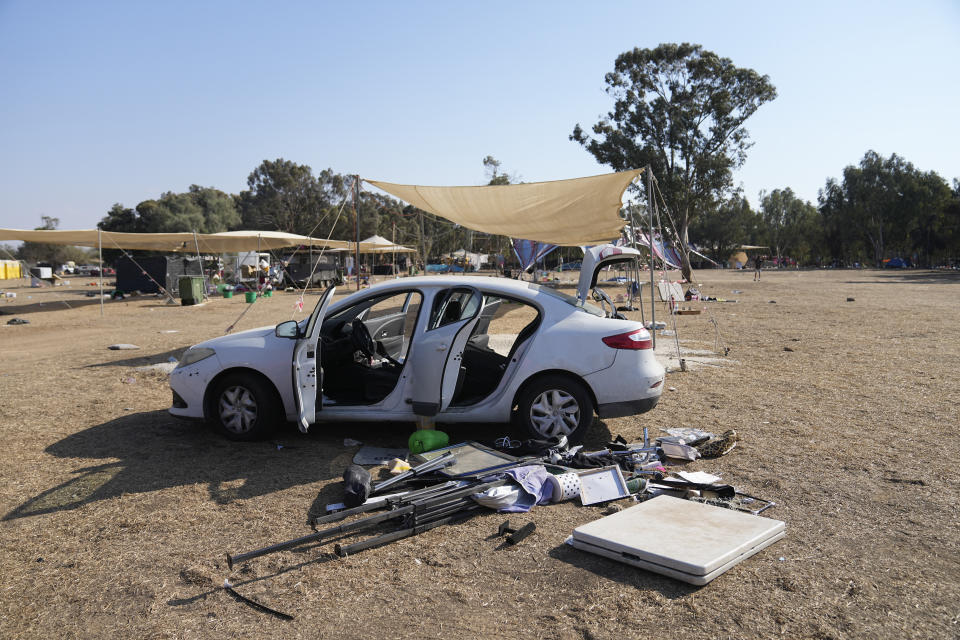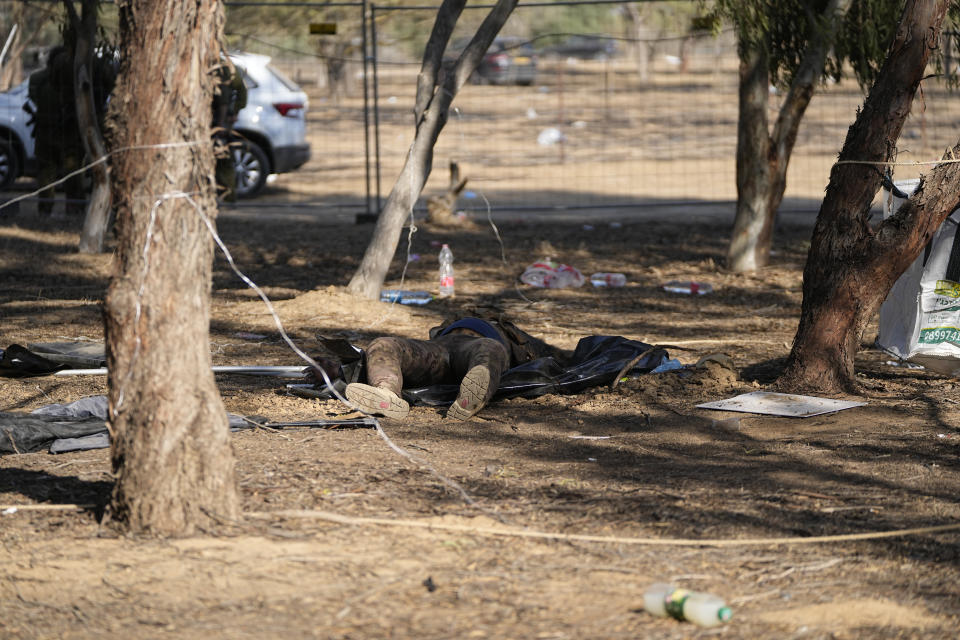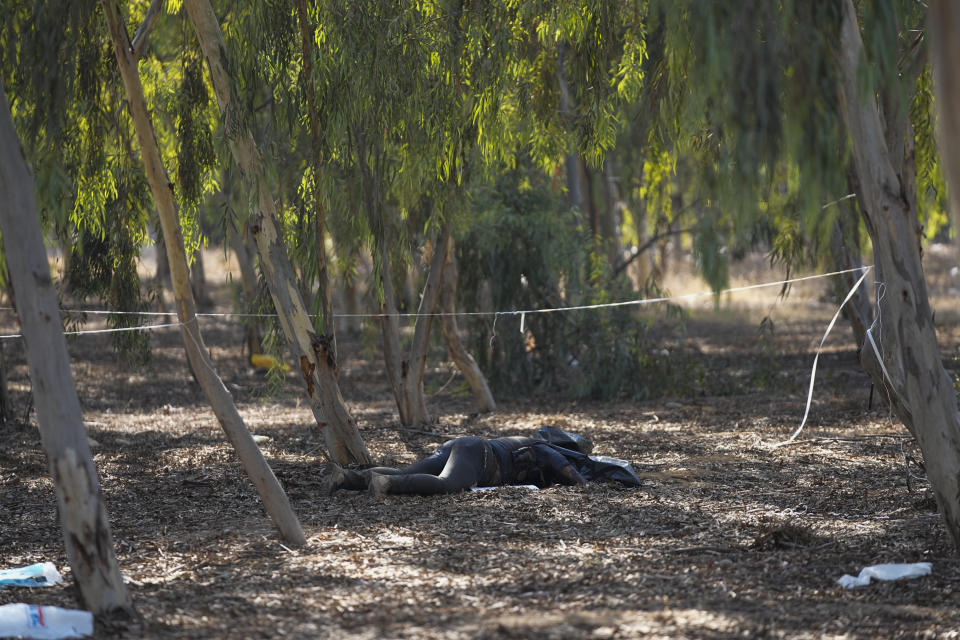A music festival survivor fleeing the attack, a pair of Hamas militants and a deadly decision
KIBBUTZ RE’IM, Israel (AP) — The two militants were just ahead of him, spraying gunfire from their motorcycle at passing cars. One militant was driving, the 50-year-old man said, and the other sat behind, shooting at any target he saw. At least one wore body armor.
“He didn’t see me,” Michael Silberberg said. So Silberberg made a decision.
He and two friends had already managed to escape the slaughter at the Tribe of Nova music festival, where hundreds of militants from the Palestinian group Hamas had swarmed through crowds, killing at least 260 people and taking an unknown number hostage.
They survived another attack a few minutes later, with two hiding in a roadside air-raid shelter while the other hid outside.
Soon after that they were driving away in Silberberg’s car, trying to get far from the massacre, when they saw the motorcycle.
“I knew it’s either I hit him or I know I die, or other people die, or somebody will die,” Silberberg said.
So he stepped on the accelerator and slammed into the motorcycle with his four-door sedan.
The shooter, he said, died immediately. The driver survived, but they left him crawling in the street badly injured.
“They were neutralized,” Silberberg said.
The men quickly drove away, with the vehicle's front end badly dented, the car alarm blaring and smoke billowing from everywhere. They drove like that for 20 minutes until they reached a friend’s house and found safety.
Silberberg, an Israeli-born German, said he had long been politically liberal, hoping for a peace that gave Palestinians their own homeland.
“You know: ‘All good. Let’s live all together. Let’s give them the land.’”
But not anymore.
“My mind has changed. I’m sorry — I’m not sorry,” he said, sitting in his seafront Tel Aviv apartment where he and his two friends hunkered down after the attack.
“You can’t make peace with these people,” he said. “They don’t want to coexist with us. They want to kill us.”
Early Saturday morning, Hamas militants based in the Gaza Strip blasted through the Israeli security fence and streamed into Israel. The attack killed more than 1,300 people in Israel, with subsequent Israeli airstrikes killing more than 1,530 people in Gaza. Israel says roughly 1,500 Hamas militants were killed inside Israel.
In the days since the assault, Israel has hammered the Gaza Strip with airstrikes as it prepares for a possible ground assault. Israel has also cut off food, fuel and medicine from Gaza’s 2.3 million people, leading aid groups to warn of an impending humanitarian catastrophe. Israel says the siege will remain in place until the hostages are freed.
The Tribe of Nova festival, held in the semi-wooded fields outside Kibbutz Re’im, just a few miles from Gaza, was one of the first Hamas targets.
Videos show militants arriving on trucks and motorcycles, with gunmen charging into crowds and firing on people as they tried to flee into the fields.
Israeli communities near the festival also came under attack, with Hamas gunmen kidnapping people — soldiers, civilians, the elderly and young children — and killing scores of others.
The carnage stunned Israel, which had not seen bloodshed like this for decades.
On Thursday, a man who had been tending bar at the festival came back to the scene of the attack. He said he had no choice.
“I feel I owe them, you know, all the people that were here and murdered,” Peleg Horev told an Associated Press journalist allowed to visit the scene. “I’m alive, I stayed alive. I have to tell their story. Each and every one of them."
The bodies have been cleared away from the festival grounds, but the wreckage of the attack is everywhere.
Bullet-riddled cars, many with their windows shot out, are scattered through the festival area and nearby roads. Clothing spills from broken suitcases. A woman’s shirt remains in a tree where it had been hung to dry. A pair of eyeglasses sit on a windowsill. Ticket booths are pocked with gunfire.
“Lost and Found” announces a festival poster hanging from a fence. “Camping Area,” says another.
Leaves blow in a gentle breeze as soldiers patrol the area, occasionally dropping to the ground at the sound of distant gunfire. Security forces worry that militants could attack again, or that some could still be hiding in the fields and brush.
Peleg escaped by walking for hours, deeper into Israel. He avoided the roads, where many who tried to escape by car were killed when they were stuck behind other vehicles that had come under attack.
“All of this time you’re hearing gunshots and screaming from afar,” he said. “We just go as far as we can as fast as we can.”
He is deeply shaken by the reality that he survived and so many others did not.
"I owe them, really.”
___
McNeil reported from Tel Aviv.
